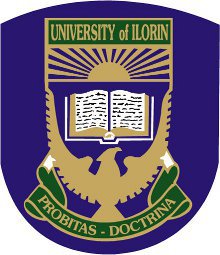CRS Keypoints: Corruption; Corruption is a pervasive issue that plagues societies worldwide, affecting governments, institutions, and individuals alike. It undermines trust, erodes values, and hinders progress.
CRS Keypoints: Corruption
In this article, we will delve into the complex problem of corruption, exploring its definition, causes, effects, and potential solutions, drawing insights from relevant biblical references such as 1 Timothy 6:6-11, 2 Timothy 3:8, 2 Peter 1:4-11, and James 5:1-6.
Study Other CRS Keypoints Here
This class note is for people sitting for the following examinations: JAMB, WAEC, NECO, GCE, IJMB
I. Definition of Corruption
Corruption is the abuse of entrusted power for personal gain or to benefit a select few, disregarding the common good and the principles of fairness, justice, and integrity. It encompasses a range of unethical practices, including bribery, embezzlement, nepotism, fraud, and favoritism.
II. Causes of Corruption
a) Greed and Lust for Power: The desire for wealth and power can lead individuals to engage in corrupt practices to accumulate illicit gains and maintain control.
b) Lack of Transparency and Accountability: When institutions lack transparency and accountability mechanisms, it creates an environment conducive to corruption, as wrongdoers can operate with impunity.
c) Weak Governance and Rule of Law: Inadequate enforcement of laws and weak governance structures allow corruption to flourish, as perpetrators face minimal consequences for their actions.
d) Poverty and Inequality: Societies with high levels of poverty and inequality are more susceptible to corruption, as people may resort to corrupt acts out of desperation or lack of access to basic necessities.
III. Effects and Consequences of Corruption
a) Erosion of Trust: Corruption erodes trust in institutions and public officials, leading to disillusionment and a breakdown of social cohesion.
b) Economic Impact: Corruption diverts resources from essential services and infrastructure, hindering economic growth and development.
c) Social Injustice: Corruption perpetuates social injustice, as resources meant for the welfare of the people are misappropriated.
d) Undermining the Rule of Law: When corruption becomes widespread, it undermines the rule of law and weakens the foundation of a just and stable society.
IV. Ways of Curbing Corruption
a) Strengthening Institutions and Governance: Building robust institutions with transparent and accountable practices is crucial in curbing corruption.
b) Promoting Transparency: Transparency in government transactions, public spending, and decision-making processes can deter corrupt practices.
c) Fostering a Culture of Integrity: Promoting ethical behavior and integrity in all aspects of society can discourage corruption and encourage responsible leadership.
d) Empowering Civil Society: Engaging civil society in monitoring and reporting corruption can help expose wrongdoings and hold individuals and institutions accountable.
e) Implementing Anti-Corruption Laws: Strict enforcement of anti-corruption laws and imposition of appropriate penalties are essential deterrents.
f) Educating and Raising Awareness: Educating the public about the detrimental effects of corruption and its impact on society can foster a collective commitment to combating corruption.
g) Encouraging Whistleblower Protection: Providing protection and incentives for whistleblowers can encourage the exposure of corruption without fear of reprisals.
Conclusion
Corruption is a multifaceted problem that requires collective efforts to address effectively. By understanding the causes, consequences, and detrimental effects of corruption, societies can work towards implementing comprehensive measures to curb this pervasive issue.
Through transparency, accountability, strong governance, and a commitment to integrity, individuals and institutions can actively contribute to building a more just and equitable society, free from the grips of corruption.
Biblical principles of honesty, integrity, and righteous living can serve as a guiding light in the fight against corruption, encouraging individuals to pursue virtue and contribute to the betterment of society.







